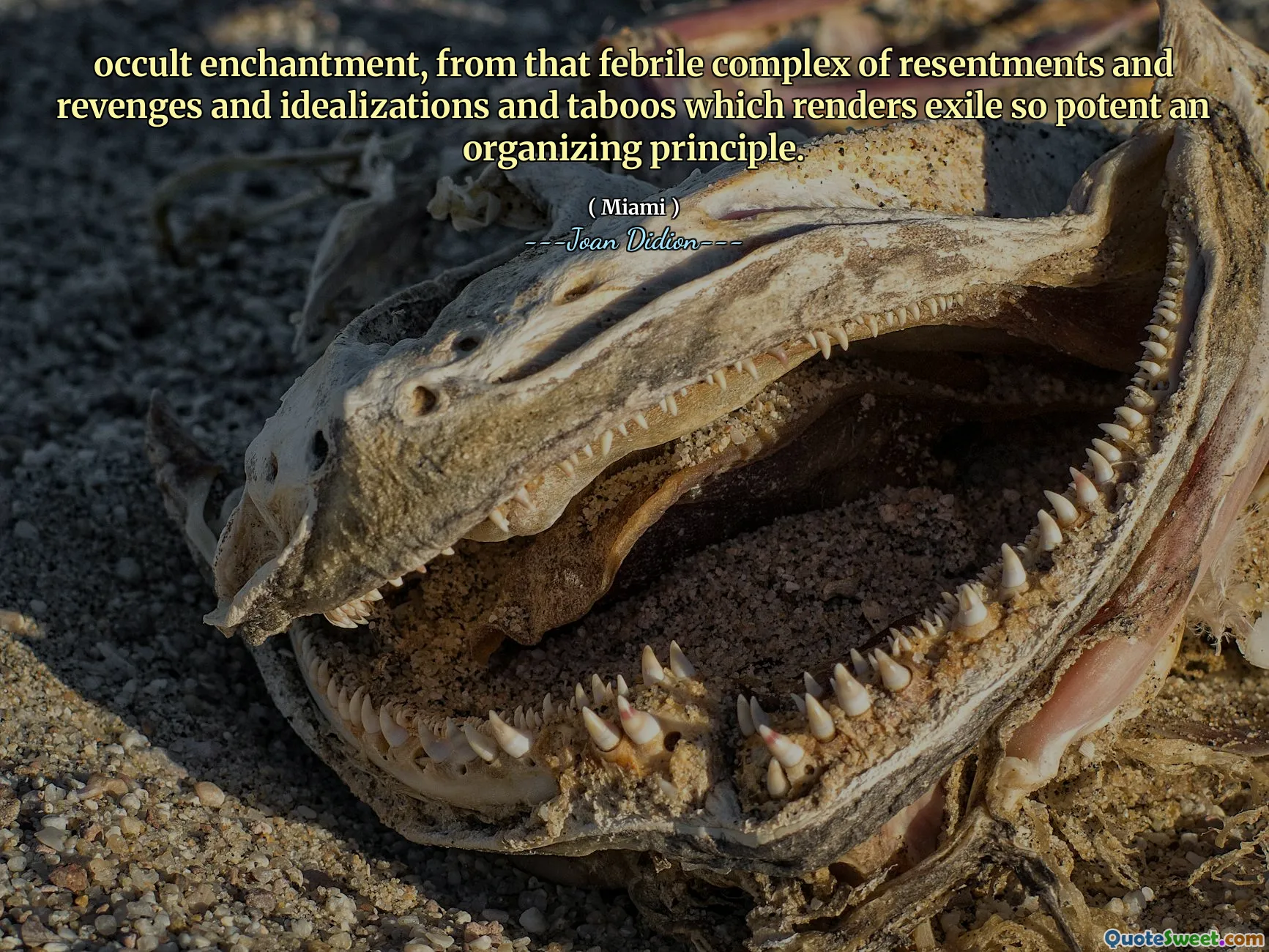
occult enchantment, from that febrile complex of resentments and revenges and idealizations and taboos which renders exile so potent an organizing principle.
In Joan Didion's "Miami," the author delves into the intricate dynamics of exile, highlighting how it creates a powerful sense of identity and belonging among displaced individuals. Didion reflects on the emotional complexity that arises from feelings of resentment, revenge, and idealization, which often accompany the experience of exile. This emotional turmoil can transform into a uniquely potent force, shaping communities and influencing personal relationships. The phrase “occult enchantment” captures this phenomenon, suggesting that the experiences tied to exile carry a mystical quality, born out of both personal struggles and cultural histories. Didion's exploration reveals how these intertwined feelings contribute to a distinct social fabric within exiled communities, marked by shared narratives and collective memories that reinforce their bonds.
In Joan Didion's "Miami," the author delves into the intricate dynamics of exile, highlighting how it creates a powerful sense of identity and belonging among displaced individuals. Didion reflects on the emotional complexity that arises from feelings of resentment, revenge, and idealization, which often accompany the experience of exile. This emotional turmoil can transform into a uniquely potent force, shaping communities and influencing personal relationships.
The phrase “occult enchantment” captures this phenomenon, suggesting that the experiences tied to exile carry a mystical quality, born out of both personal struggles and cultural histories. Didion's exploration reveals how these intertwined feelings contribute to a distinct social fabric within exiled communities, marked by shared narratives and collective memories that reinforce their bonds.







